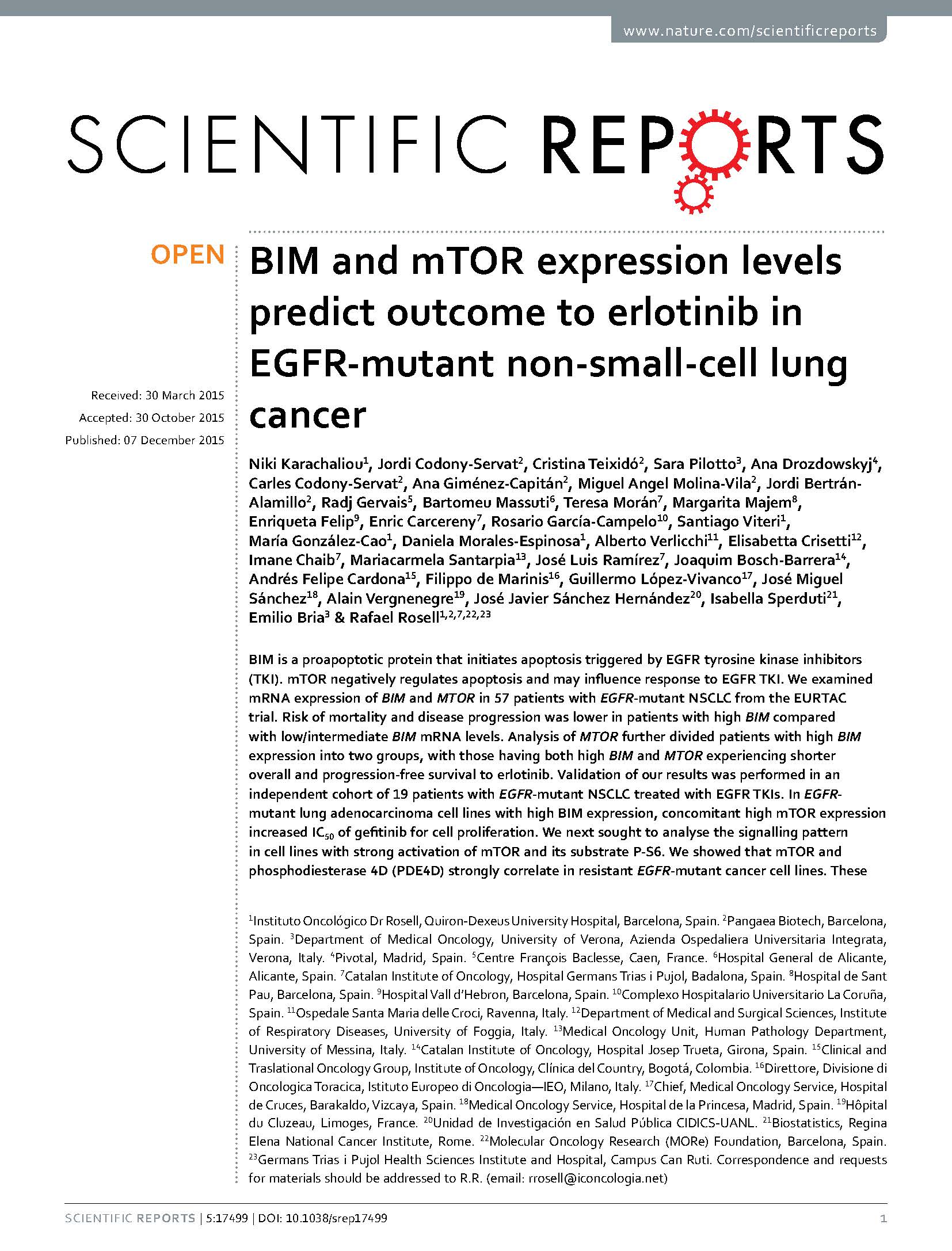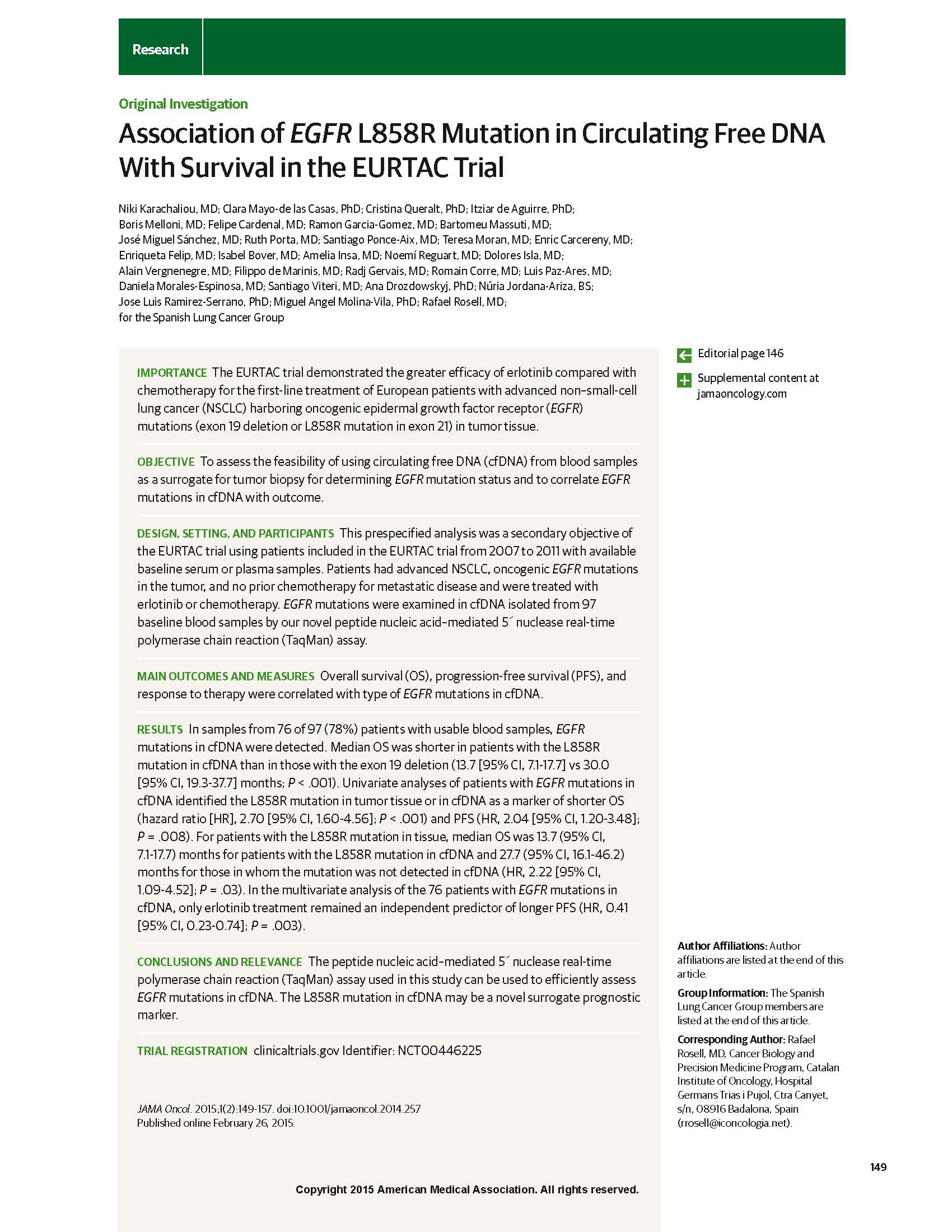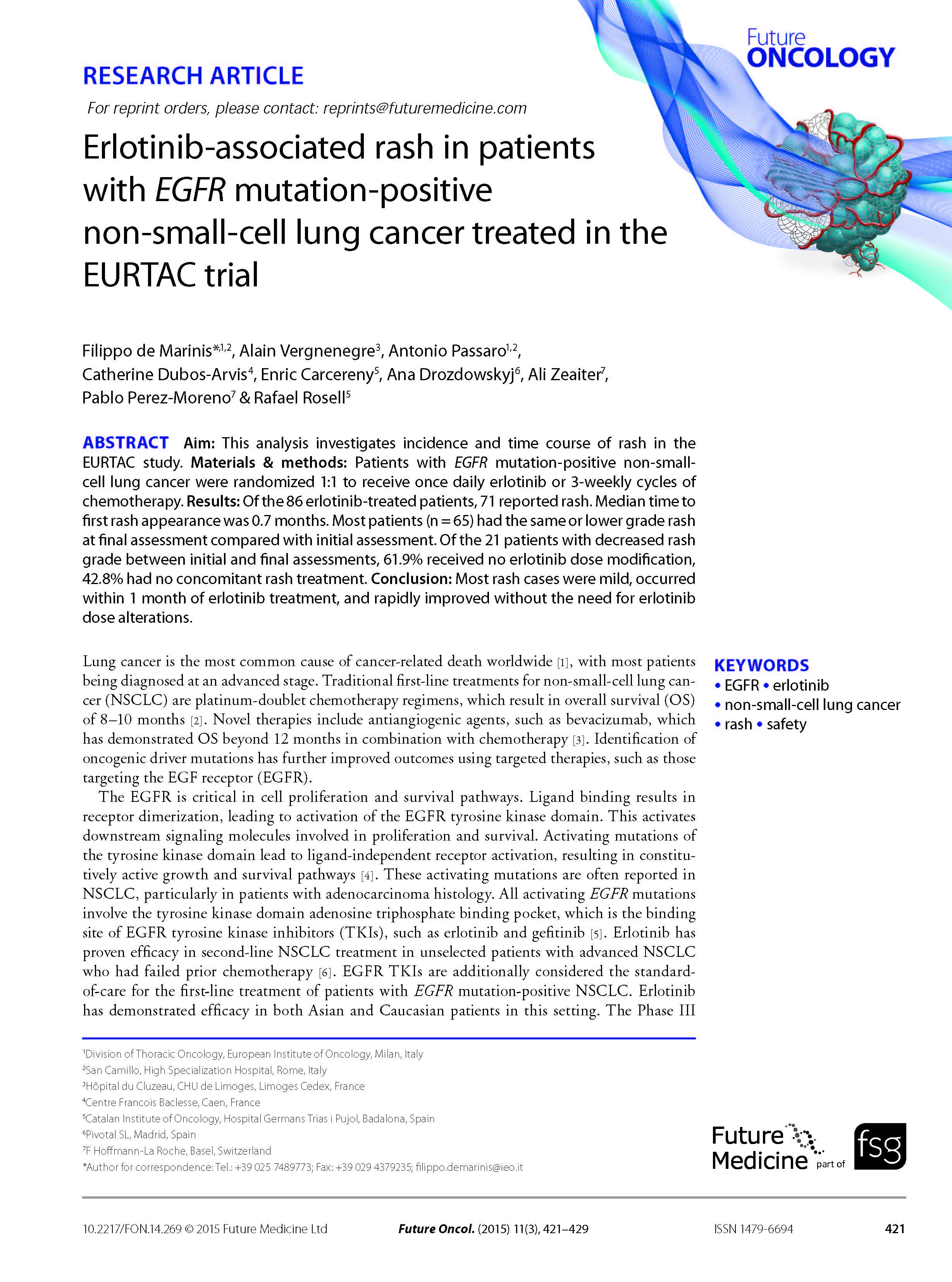
Bevacizumab for newly diagnosed pleural mesothelioma in the Mesothelioma Avastin Cisplatin Pemetrexed Study (MAPS): a randomised, controlled, open-label, phase 3 trial.
BACKGROUND:
Malignant pleural mesothelioma is an aggressive cancer with poor prognosis, linked to occupational asbestos exposure. Vascular endothelial growth factor is a key mitogen for malignant pleural mesothelioma cells, therefore targeting of vascular endothelial growth factor might prove effective. We aimed to assess the effect on survival of bevacizumab when added to the present standard of care, cisplatin plus pemetrexed, as first-line treatment of advanced malignant pleural mesothelioma.








